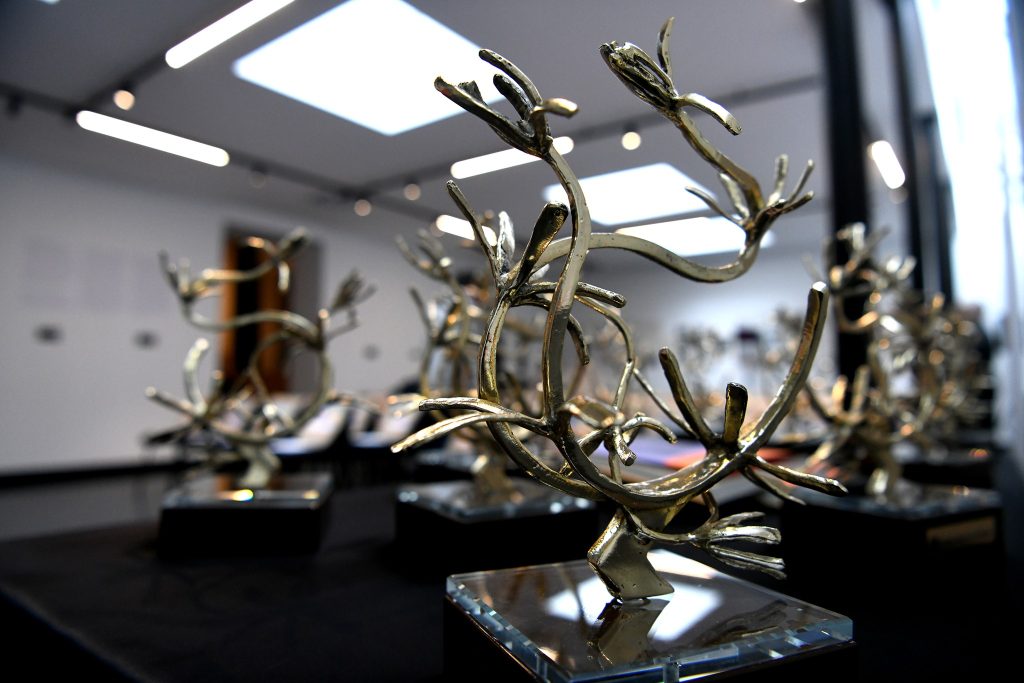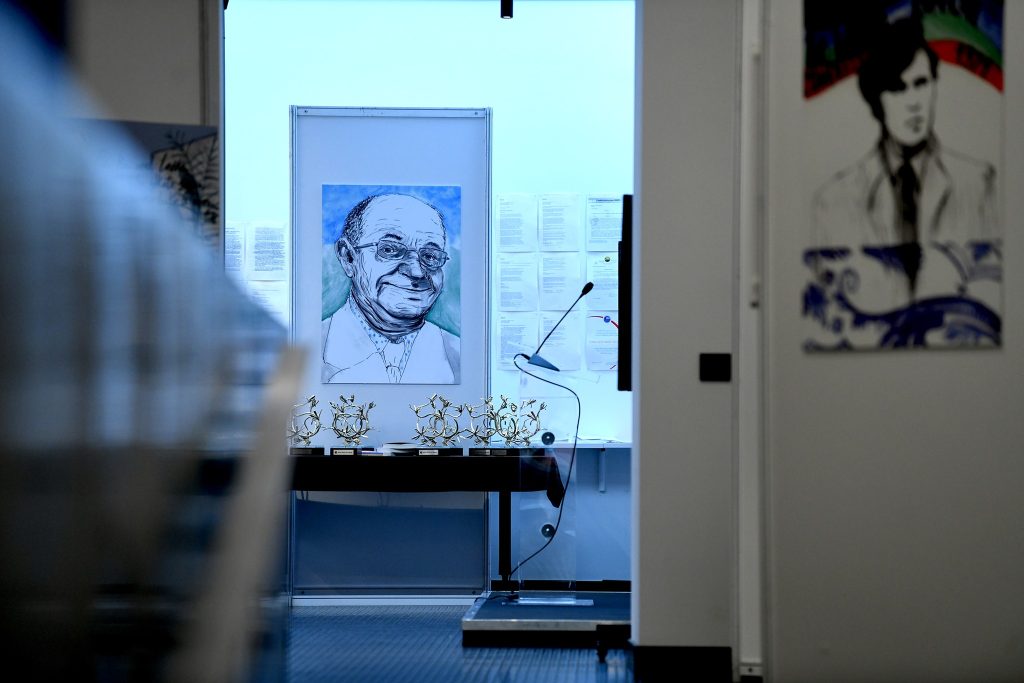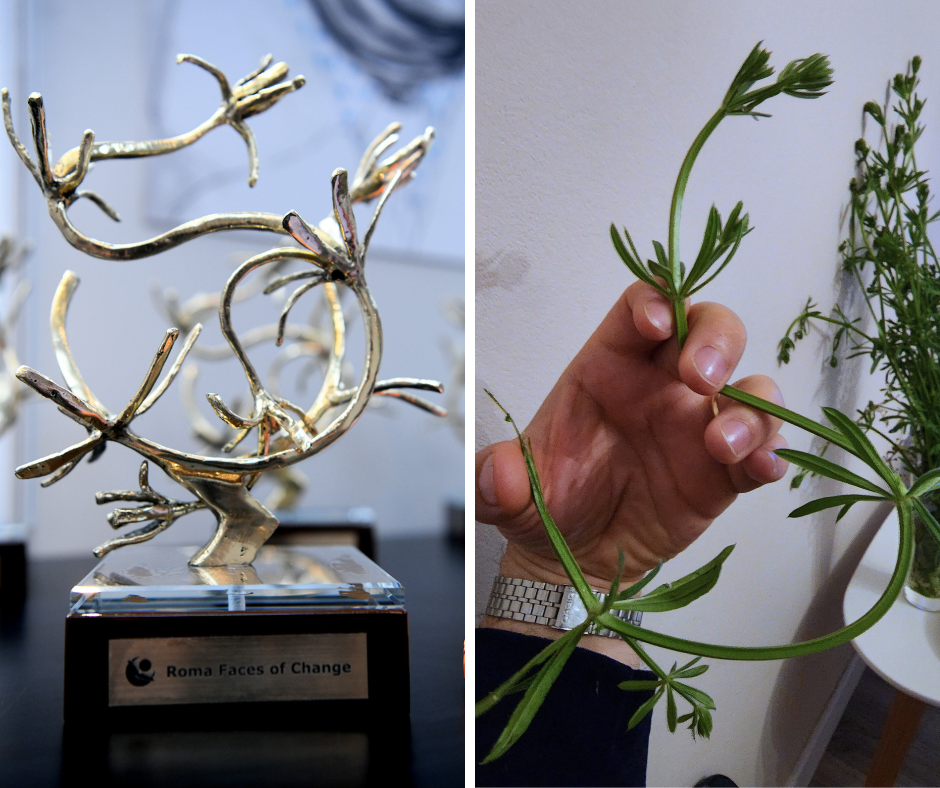The Roma Education Fund (REF), the European Roma Institute for Arts and Culture (ERIAC) and the Open Society Foundations (OSF) in partnership with the Ministry of Human and Minority Rights and Social Dialogue and with the Commissioner for Protection and Equality from the Republic of Serbia organized on May 16th the Roma Faces of Change international event.
The event, that took place in the Open Society Foundations premises, was addressed by the Ambassador of Sweden to the Republic of Serbia, H.E. Ms. Annika Ben David and by Mr. Ciprian Necula, Chair of Roma Education Fund.
“Today, we are marking the Roma Resistance Day. On this special day, we are providing to the Roma community from the region and beyond (particularly the young generation) the opportunity to get to know part of our many prominent Roma personalities, courageous men and women that made a huge contribution to the Roma Movement in the past half of century. Roma Faces of Change is a project of the Roma Education Fund. Today we are launching a book and a documentary dedicated to ten Roma leaders. Their stories about the events and the challenges they faced and the ways in which they fought for our emancipation and equality in society, should inspire and offer strength to the new Roma generation of leaders. It is mandatory for them to continue the fight for better living conditions and equal treatment of the Roma community in Europe and worldwide. I sincerely hope that this project and its products will inspire many young Roma people to organize and involve themselves in the mission of the previous generation that we are presenting today” – Redjepali Chupi, Interim Co-Director of the Roma Education Fund.
We were joined by some distinguished contributors to the Roma Faces of Change project: Sevdija Demirova Abdulova (North Macedonia), Vasile Ionescu (Romania), Vaska Bajramovska Mustafa (North Macedonia), Bajram Haliti’s granddaughters Martina and Lejla (Serbia) and the son of Rajko Djurić (Serbia), Vasil Chaprazov (Bulgaria), Marcel Courthiade (Albania/France) represented by Gheorghe Sarău (Romania) and his wife LJeta Duka (Albania) and Ljatif Demir (North Macedonia).
Through these two educational and cultural items (the book and the documentary), Roma Education Fund intends to highlight the activity of those who gave their best contribution to the Roma movement in countries like Albania, Bulgaria, Croatia, France, Great Britain, North Macedonia, Poland, Romania, and Serbia. Armed with the powerful tool of education and energized by their unrelenting will to pave the way to a better future for their brothers and sisters, these militants became the Roma Faces of Change through their Resistance.
We honoured their activity during a special ceremony, offering them an award designed by the Roma artists Sead Kazanxhiu (Albania) and Zoran Tairović (Serbia), a token of appreciation that symbolizes the growth of a new generation of Roma leaders.
Roma Faces of Change Award Ceremony
The Roma Faces of Change Award is inspired by the Galium Aparine plant, a flower used during the Djurdjevdan / Hederlezi celebration. The award has three elements: Wood, Glass, and Bronze (metal).
The Wood represents the relation that the Roma people have with the land and the nature.
The Glass represents the purity and the transparency of the Roma cause.
The Bronze (metal) symbolizes growth, and the powerful contribution of the Roma leaders and militants that have dedicated their lives to the Roma cause, fighting prejudice, disrespect, hatred, and injustice against the Roma.
“These three elements are put together to create this trophy but, at the same time, it symbolizes the new generation of Roma leaders who are beginning to grow. The Roma Faces of Change Award – the Herdelezi Flower Trophy – is a result of continuous discussions, of many sketches, and research of the elements that represent Roma culture. Herdelezi Flower is a plant that has been used by the Roma in the villages, especially in Albania, for centuries, as an element when they are celebrating Herdelezi (“St. George’s Day”). And this cultural element (tradition) is in danger of being forgotten. Together with Zoran, we re-bring this plant, highly appreciated by the Roma, as a mean of growth, promotion, recognition, and safeguarding of the Romani culture” – Sead Kazanxhiu
Also, the flower is shaped as the number 5, a symbol of the five decades that have passed since the First Romani Congress, a defining moment in the recent history of the Roma nation.
Roma Faces of Change BOOK – Read it HERE
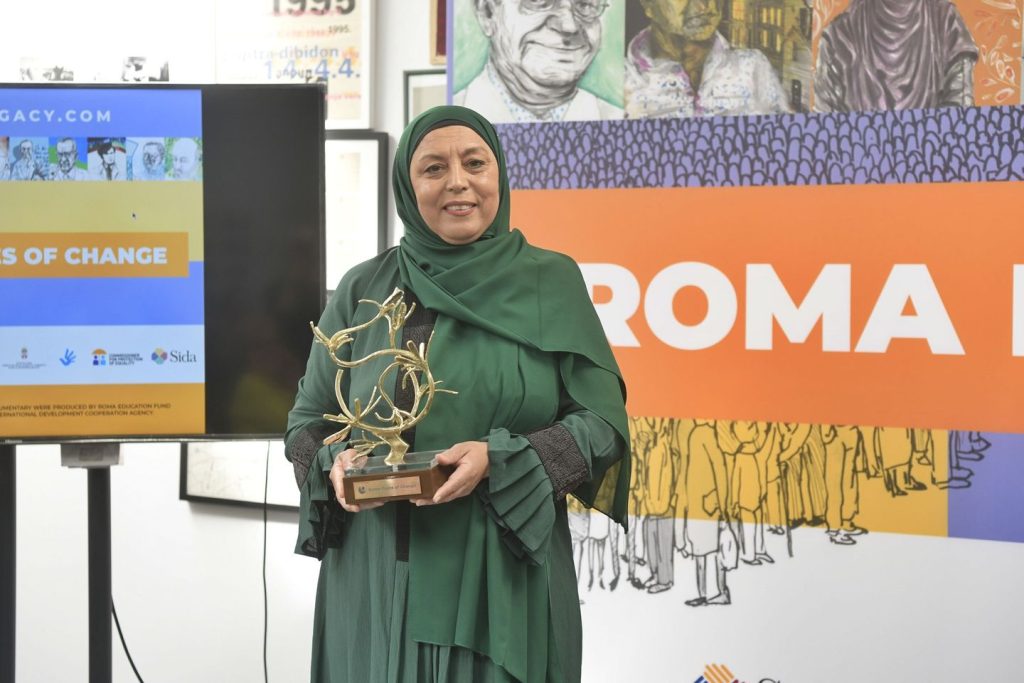
Vaska Bajramovska – Mustafa, Northern Macedonia
“Not long ago, educated Roma women were hard to find. Nowadays, Roma women started the changes in their community, fighting for emancipation, inclusion and integration in society, to the great satisfaction of all of us. Young Roma continue to challenge the perceptions of others about the “unchangeable mentality” of the Roma” – Vaska Bajramovska – Mustafa, Northern Macedonia.
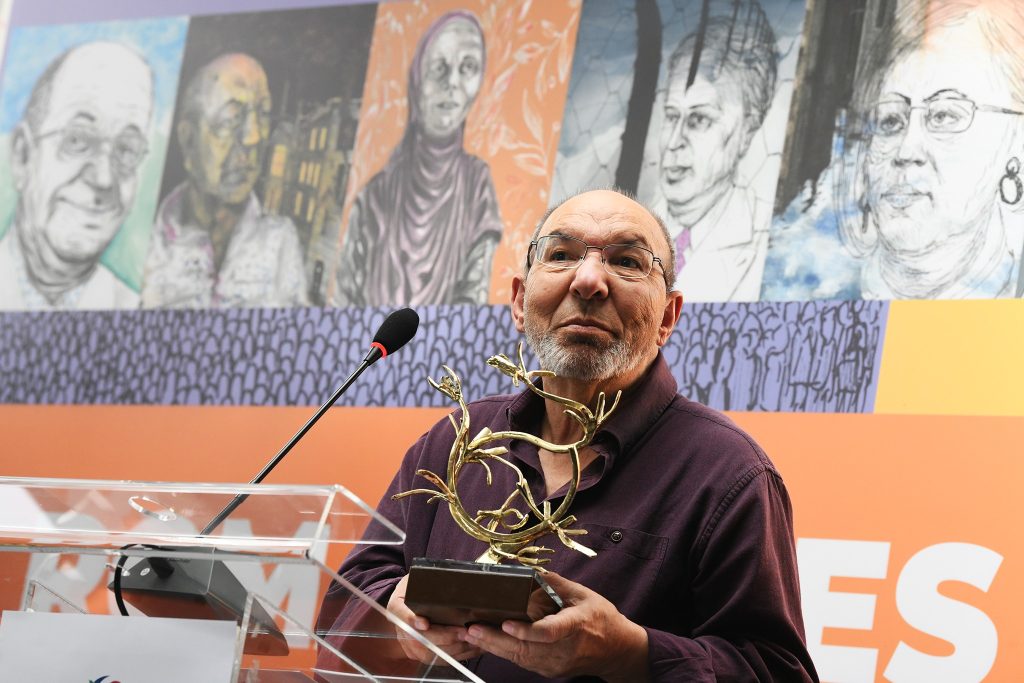
Vasil Chaprazov, Bulgaria
“What made me join the Roma movement was the injustice, the disrespect for our community, the belief that we can change things, challenge the state to review its attitude towards the Roma, to become familiar with our abilities by creating normal working conditions for a Roma organization that would represent all of us before the Authorities” – Vasil Chaprazov, Bulgaria.
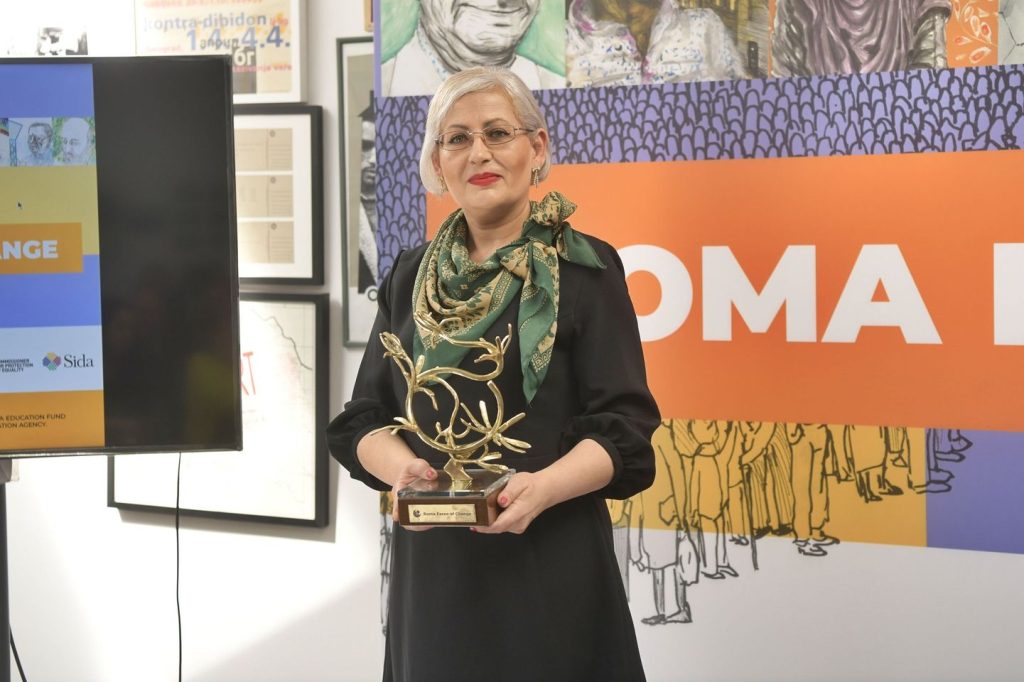
Sevdija Demirova Abdulova, Northern Macedonia
“The best way to eradicate stereotypes and prejudices that lead to discrimination and hate speech is to highlight positive examples of successful Roma who built their path painstakingly, with a lot of love and commitment, hard work, persistence and hoping that their capabilities will surface and will be rewarded accordingly” – Sevdija Demirova Abdulova, Northern Macedonia.
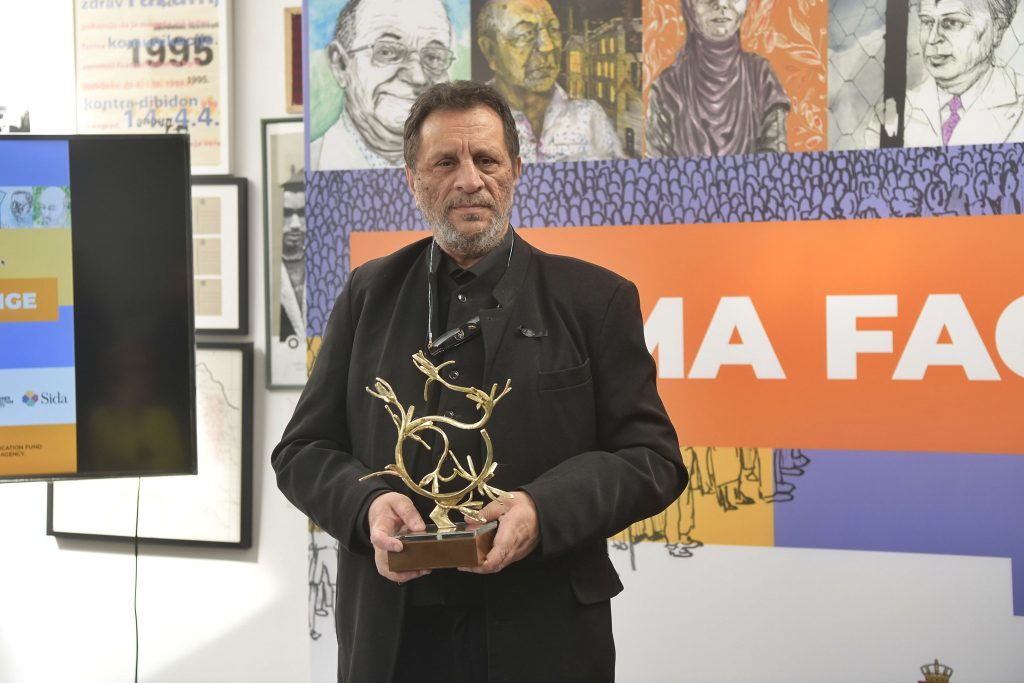
Vasile Ionescu – Romania
“Even if you have lost hope and do not believe in the victory you dreamed of, you have an obligation to join, in solidarity and responsibility, so that the Truth may have a future in the minds of those to come, of posterity. It is important to fight with your own weapons, starting from your real competencies, not so much to stand out amid the whirlwind of battle, but to understand who you are, as an existential project in the making” – Vasile Ionescu – Romania
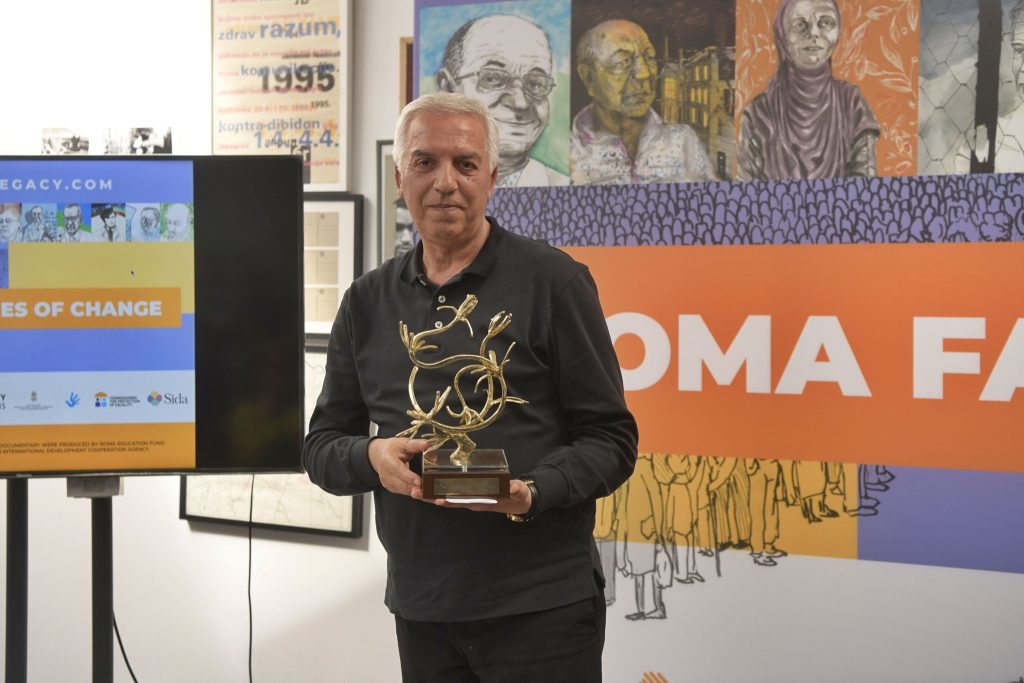
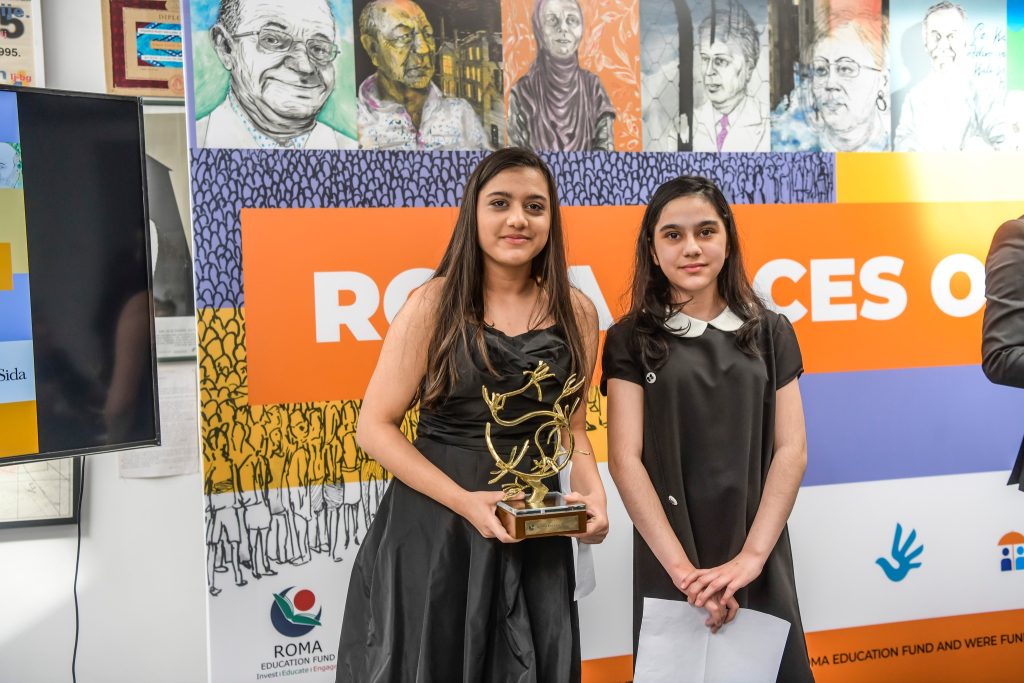
“In searching for our existence, it is essential to see in the history, a man, in the national destiny, the destiny of a man, in a community, a single person, behind national ideologies, personal motives for “creating history”, behind flags, arms, and xenophobic ideas, a man’s face, the beat of his heart, and the shape of his soul. It is high time for renewing the bond of friendship, which is the only natural relation among nations. We are all part of a unique nervous system to feel the deepest needs of humanity” – Bajram Haliti, Serbia.
Bajram Haliti’s granddaughters Martina and Lejla received the award in their grandfather’s name at the Roma Faces of Change launching event, on May 16.
“We are overwhelmed with feelings of joy for our grandfather getting the award. His passion, his commitment continues to live. This is not merely an award for him, but the acknowledgement for the entire Roma community”
“On behalf of our family, we would like to express our immense gratitude to Roma Education Fund for this enormous honour. Even though our grandfather is not physically present, his spirit continues to live inside of us, and his legacy will continue to lead us”.
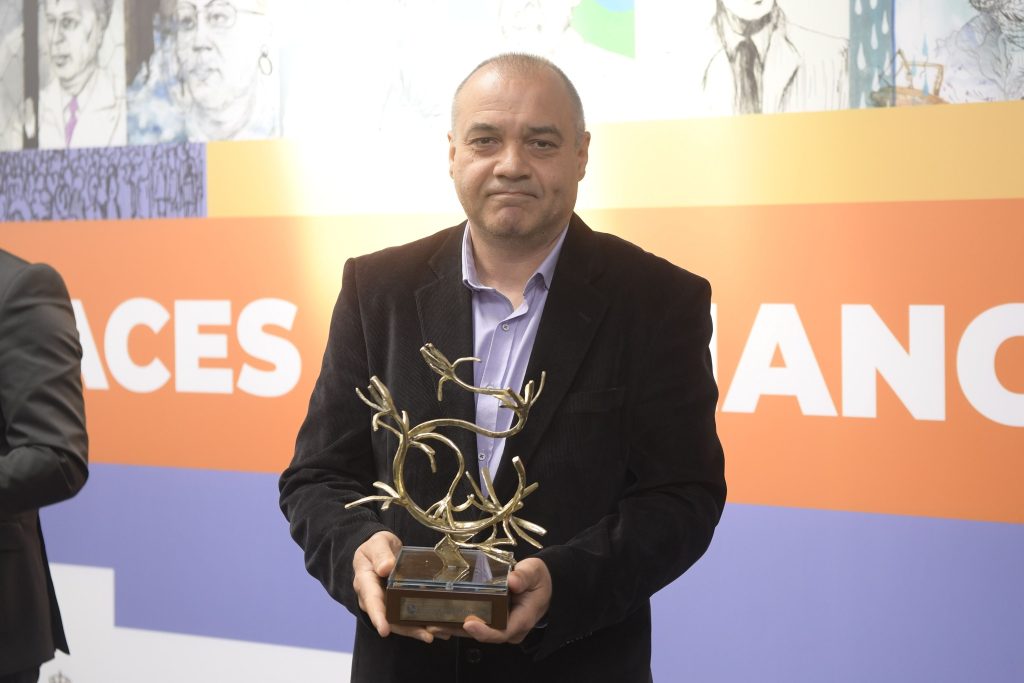
“Because I am a Roma, the ethnic distance followed me like a shadow, sometimes it came to me even in my dreams. For the Roma, it is much more important to be than to have. The Roma have proven that even without their own state and territories, they can preserve their values, language and religion regardless of where they live” – Rajko Djuric, Serbia.
Rajko Djuric’s son, Branko, received the award in his father’s name at the Roma Faces of Change launching event, on May 16.
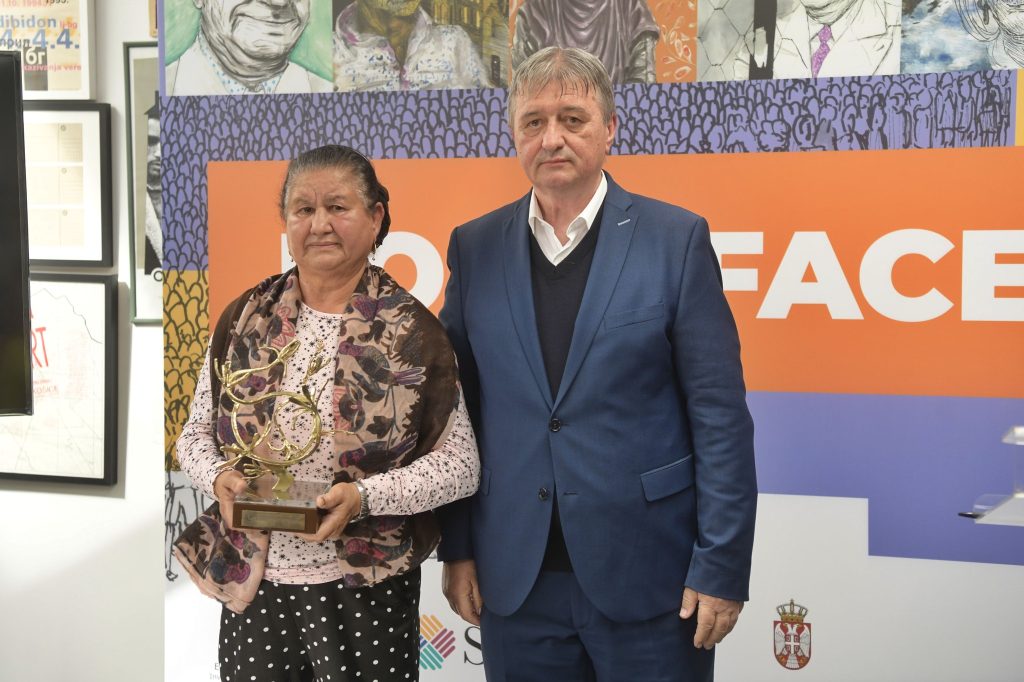
“Marcel Courthiade was and will remain the greatest visionary specialist of the common Romani language. Ingeniously he intuited and standardized the common Romani language, a balanced version towards all the local varieties of this idiom, keeping it free from phonetic alterations and the local non-Romani lexicon, encouraging the inherited common lexicon and the one formed in the spirit of the Romani language by internal means of language enrichment” – Gheorghe Sarău, Romania, an university professor and a linguist specialized in the Romani language.
The wife of Marcel Courthiade, Jeta Duka, received the award designed by the Roma artists Sead Kazanxhiu (Albania) and Zoran Tairović (Serbia).
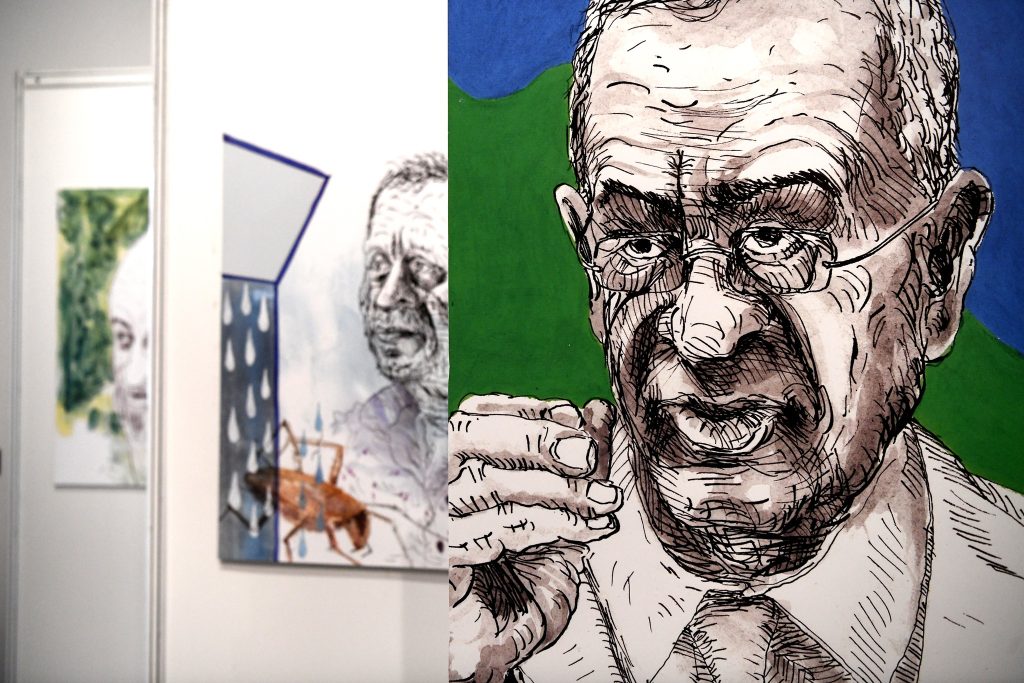
“(…) emancipation means increasing the level of independence among our communities, both in economic and social areas. Such an independence is best provided by education, so we struggle to increase the intellectual potential of our people. I believe strongly in parents and their wish to have educated children” – Andrzej Mirga, Poland.
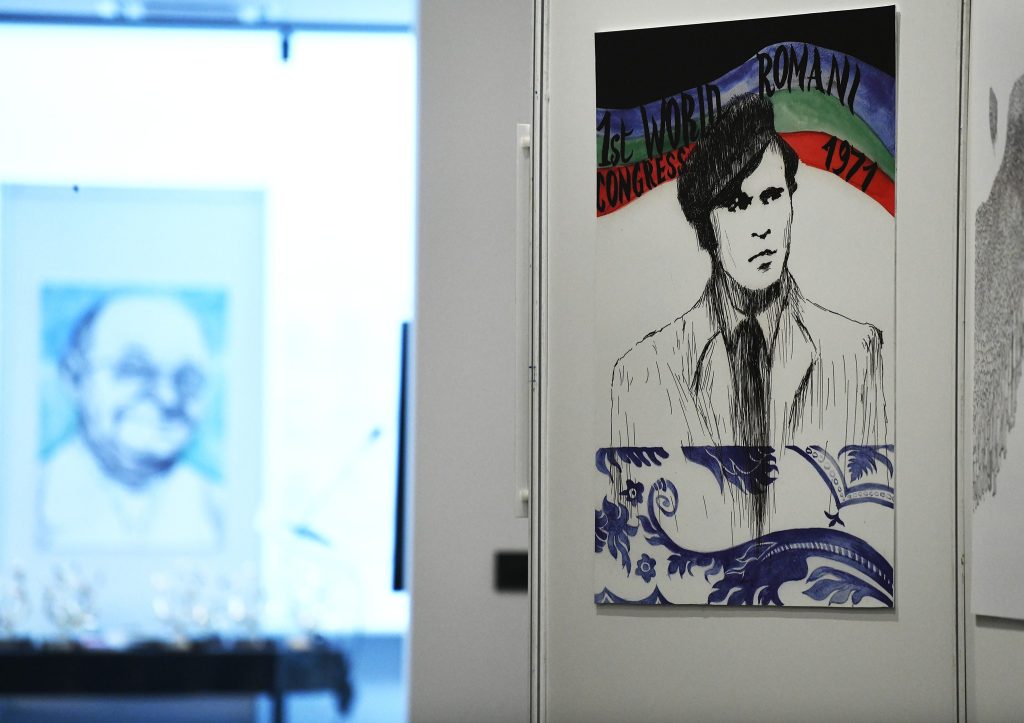
“Dignity. Equality. Self-emancipation? None of these long-pursued aims will be achieved unless we stand up for them with clenched fists. Six hundred years of marginalization and murder! Proof enough that hand-you-down integration is never going to happen. I urge those who cling to such hopes to uncouple yourselves from this false path” – Grattan Puxon, United Kingdom.
Roma Faces of Change Documentary – Watch it HERE
The documentary Roma Faces of Change consists of five interviews with prominent Roma figures where they verbalize the main points and ideas of the written collection. These videos represent a short introduction to the book as well as a motivation for the viewers to explore more in detail by reading the book.
More photos from the event on our Facebook account!
The Roma Faces of Change project was financed by the Swedish International Development Cooperation Agency (SIDA).

